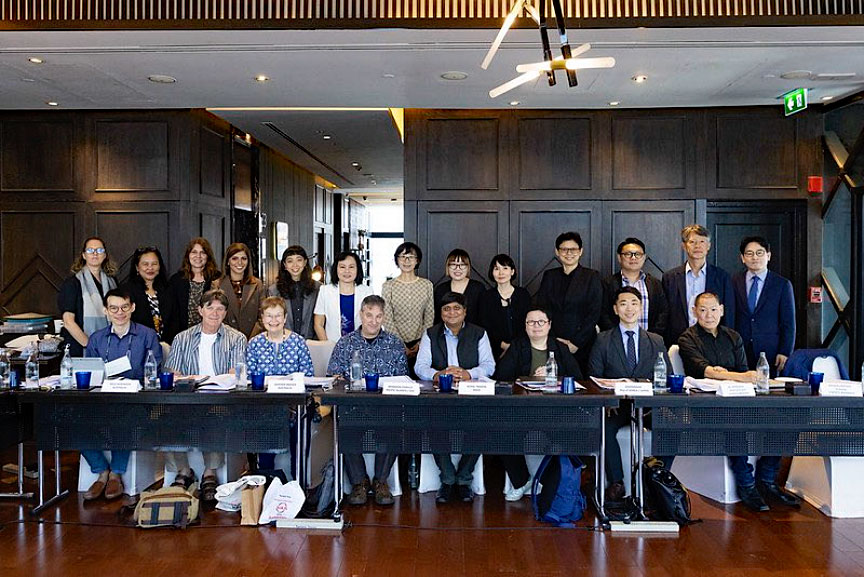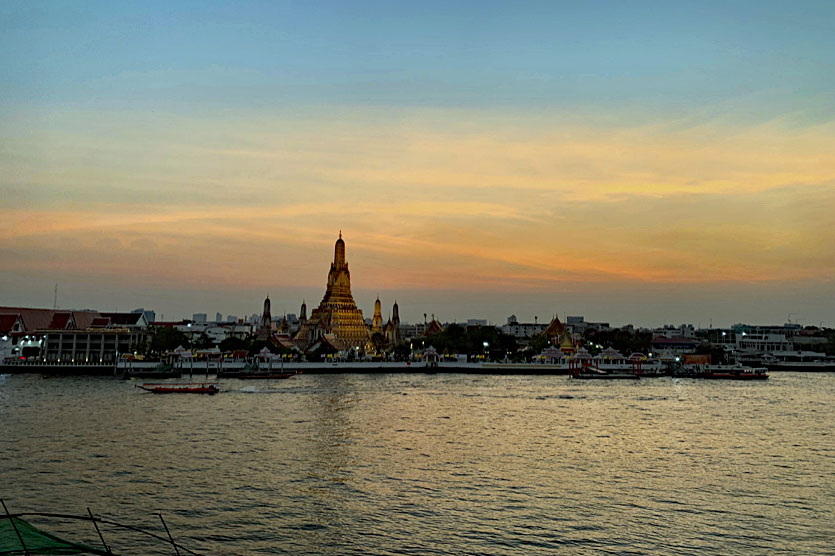Documentary Heritage at Risk in Asia and the Pacific - Experts MeetingBangkok, ThailandFebruary 28 - March 2, 2023

I took part in a strategic meeting of disaster management experts that was organized and hosted by UNESCO Bangkok. The three-day meeting took place at the Skyview Hotel in Bangkok, Thailand.
UNESCO started a project on "Preservation of Documentary Heritage through Policy Development and Capacity Building” in 2018 supported by Japanese Funds in Trust. The present meeting in Bangkok is part of the second phase of UNESCO's three-year Memory of the World project on "Consolidating the Gains in Policy Development and Capacity Building for the Preservation and Accessibility of Documentary Heritage”. The goals are:
- Follow up and further promote policy advocacy and awareness-raising on disaster risk reduction and management for preservation of documentary heritage through global partnerships, so that policymakers and memory institutions have further developed policies and strategies on preservation, access and awareness.
- Strengthen building capacity of memory institutions in Asia and the Pacific to enhance knowledge of and techniques about sustainable preservation of, and access to documentary heritage, with a specific focus on disaster risk reduction and management.
Globally, according to the survey on documentary heritage at risk (Activity 2.1 of the first phase of JFIT project) 63 % of the surveyed institutions reported that they did not have a written management plan in case of emergency or disaster.
In Southeast-Asia, the State of Preservation Survey found that only 52 percent of the surveyed institutions used archiving and cataloguing software to manage and provide access to their collections. 55 percent mentioned disaster risk management as a key issue.
There were four priorities for action to enhance understanding, resilience, governance, and access to documentary heritage.
- Ensure an integrated approach to disaster management by considering both movable and immovable heritage preservation strategies.
- Enable the heritage to "live” in the community that owns it.
- "Build Back Better” - by preserving valuable data to ensure its accessibility for learning.
- Investing in sustainable digital preservation.
The meeting in Bangkok brought together approximately twenty experts in cultural documentary heritage organizations from countries such as, Australia, China, India, Japan, Korea, Malaysia, Philippines, Singapore, and Thailand respectively. There were also one participant from Canada and myself from the United States but representing the Pacific Islands.
The goal for the three-day meeting was to combine knowledge and experience to build a practical disaster preparedness toolkit that trainers will use for the Asia and Pacific Islands region. The group was well aware that there were many toolkits that already existed, and proposed the question- how can we do to make this one different?
After much deliberation, the group compromised on the following toolkit contents:
- Risk Assessment: what is the organization's situation? This will comprise the organization's Staff/team to assess the geographical area, facilities, collection, storage, equipment, etc. This might also include a list of questions that can be used to start mapping the situation.
- Understanding risks: this will include Stories from Asia and the Pacific, and using the information for the toolkit. Additionally, the group believed that the stories could be used as training material, as well as it could help embed preventive measures/actions that can be taken to mitigate risks.
- Traditional knowledge and community engagement: examples of local or traditional knowledge could be effectively used in mitigating and recovery from disasters. Training guidelines on how to create a volunteer-based emergency response, and how to train these volunteers was an important topical issue.
- Digital archives and climate change: again, using stories about disasters that have impacted digital archives. Also, the group had considered the need to develop technical information and tips to prepare, respond and recovery digital archives from a disaster.
- Collection management and policies: the main question is- what to prioritize? The group discussed and agreed the importance of creating a "how-to” guideline on prioritizing collection items.
- Networks and shared resources: this includes a listing of existing guides, tools, training programs on disaster preparedness, useful networks, and a contact lists of vendors and suppliers. Also, the group agreed that there should be possibilities for sharing resources across institutions.
Overall, the meeting was quite successful. The expert group, indeed, helped move the initiative to the next phase. In fact, many of the experts that were in attendance in Bangkok will continue to provide valuable knowledge and information for the next step.

